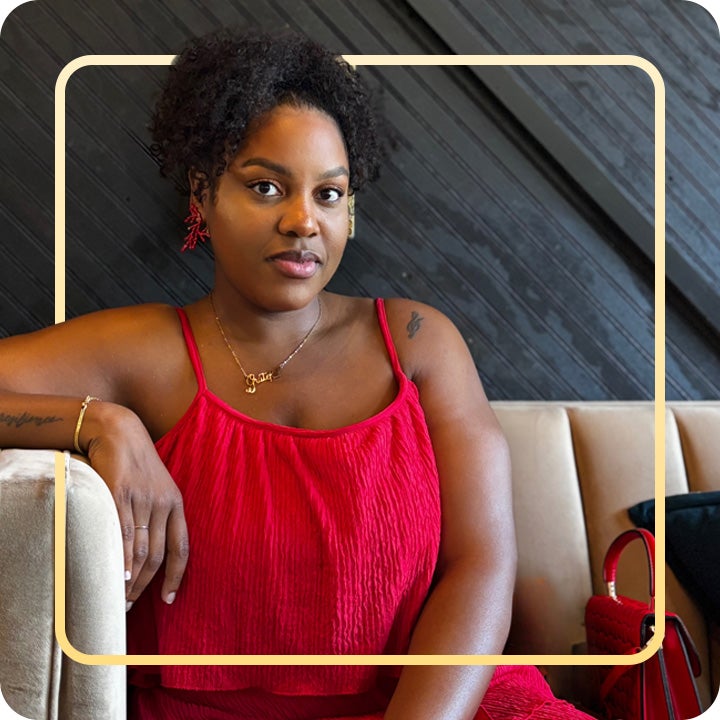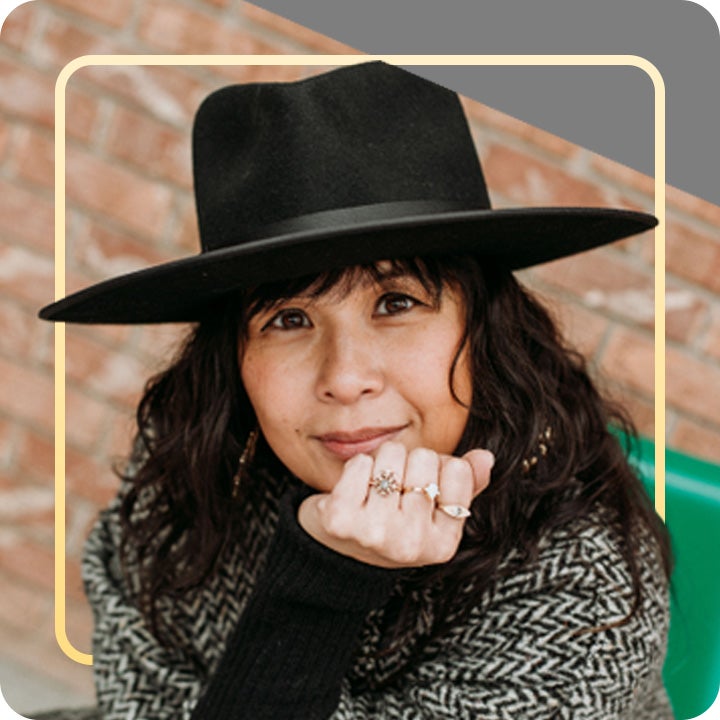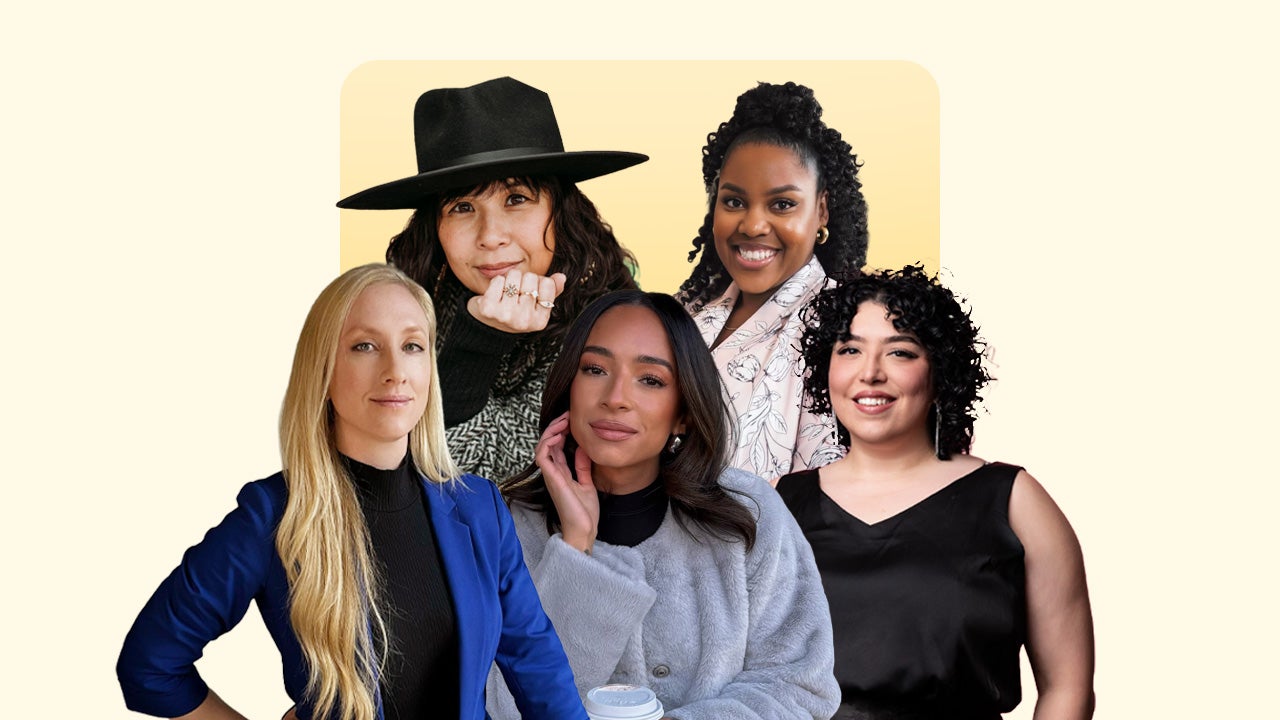Cassandra Gucwa was crying in frustration in her office closet shortly after her employer was acquired by a larger conglomerate in 2012. Hundreds of employees were now mixing into her workspace, and the vibe in the office shifted from collaborative to competitive.
“It was just so difficult to work your way up the ladder and then compete against your peers,” she tells me.
Gucwa wasn’t crying over the prospect of having to work harder to make a name for herself; she was no stranger to long hours and tight deadlines. But it didn’t feel like her new employer was treating her fairly. Some of the more experienced employees, Gucwa among them, ended up with lower titles. “It made it even harder to get to the next step,” she says. Later, Gucwa discovered that three of her male co-workers, some of whom had less experience than she did, were making around 20% more than she was for the same job.
If you’re a woman, it’s a familiar story. For every dollar a man made in 2024, women made 81 cents, according to data from the Census Bureau. The pay gap, a problem that has hamstrung generations of women, has been in fact widening over the past two years — a first since the late 1990s and a measurable reminder of the uphill path women walk in the office.
When faced with a wage gap, working women have two choices: climb up the corporate ladder, or climb off it entirely. An increasing number of women are choosing the second option: In 2024, almost half of new businesses were started by women — a five-year high according to Gusto Insights, a small business research company. This represents a 69% increase since 2019.
After a few years, Gucwa managed to score a highly coveted director role, but to do so, she accomplished what no one at the agency had done before.
She created a new service line and an end-to-end process for developing pitch decks, hiring people, training employees and selling to clients — something she calls “a little business within the business.” Six months later, she had brought in one million dollars in revenue.
“I thought: Imagine if I could do that for myself,” she tells me.
When Gucwa went on maternity leave six years ago, she decided not to go back. “I just thought, what am I doing?” she tells me. “I’m wasting so much time and getting nowhere.”
Now, she runs her own digital marketing agency, Menerva Digital, specializing in search engine optimization. She makes ten times what she used to. She decides who to work with and who not to. “You still have to deal with bad clients,” she says,”but I can choose not to anymore.”
Across the country, working women are making similar decisions. They aren’t climbing off the corporate ladder because they stopped wanting more. Rather, they realized that maybe it’s slanted in the wrong direction.
I spoke to a few female corporate expats on their experiences starting their own businesses. Here’s what they told me.
Nena Evans: From blog to business
For Nena Evans, leaving corporate life was less a leap than a long calculation — a bet she was finally ready to make on herself. In 2018, while working as a financial analyst, she began blogging on the side, documenting her office outfits in the few hours left after work. When her role expanded and the days grew longer, she shifted to Instagram. “It was an easier way to put the content out there,” she says, “and not have to write an entire dissertation about an outfit.”
Evans got her timing right. Instagram’s video function was newer, and the algorithm was hungry for creators. Within two years, she’d built enough momentum — income — to leave her corporate life behind.
Her decision was equal parts creative and practical. “I get to control my own hours, my destiny and do something I really love,” she tells me. The content earnings soon outpaced her corporate salary. “I [thought] it might be time to go all in and invest in myself.”
The influencer economy has only grown since Evans joined. By the end of 2025, it’s expected to reach $22.2 billion globally, up 12% year over year. Women dominate the field — they represent 70% of creators — yet they still earn less: just 72 cents for every dollar men make, according to Collabstr, an influencer marketing platform that studied small-scale content creators with 1,000 to 50,000 followers.

Evans’ Instagram follower count currently sits at 946K. For her, the leap to fulltime content creation wasn’t rash. “I had the data to show this is not just a one-off,” she says.
When the income became steady, she left her old job. “I wouldn’t have done it any sooner,” she tells me, “but I wouldn’t have done it any later, either.”
Sonia Daniels: Owning your business = owning your revenue

When you own your own business, you control your income. For Sonia Daniels, that freedom has been one of entrepreneurship’s greatest rewards. “I have a lot more control over my financial future,” she tells me.
As the owner of S. Daniels Consulting, she collects from multiple revenue streams like speaking engagements in addition to the work she does for her clients — she’s no longer shackled to a biweekly paystub. “It’s been beautiful as a woman, to make my own money and not be limited by where it comes from,” she says.
Daniels didn’t start her business with money in mind. If you ask her, she’ll tell you it’s because she was a disgruntled employee. Before, Daniels worked in the public sector, bouncing around between different nonprofits and government administrative positions — ones that didn’t feel conducive to her thriving professionally.
In 2016, after taking time off for personal reasons, Daniels was asked to leave her job. “It felt dehumanizing,” she tells me. “It confirmed what I already felt — the lack of safety and security as a Black woman in corporate America.”
It’s not just Daniels’ gut feeling; her reality reflects the data. The climb to the top of the corporate ladder is steeper for Black women. Black women earned just 67 cents for every dollar white men made, according to the U.S. Census Bureau. Black women also ask for promotions at the same rate as men, but for every 100 men promoted to manager, only 58 Black women were promoted, Lean In, a women’s professional empowerment nonprofit, found.
Today, Daniels strives to change corporate culture from the outside in. With her consulting firm, she aims to “create a safe space for people of color and minorities in general,” for her clients and within her own business.
Fabiana Meléndez Ruiz: Filling the Spanish-speaking market gap
Fabiana Meléndez Ruiz never planned to own a business, but it’s become her way of advocating for her community. A Venezuelan-American who fled to Austin, Texas with her family 20 years ago on political asylum, Ruiz now runs Refuerzo Collaborative, a bilingual public relations agency she describes as “mission-driven.” “We’re very pro-Latino, we’re against the ICE raids because we’re Latina-owned,” she tells me. For Ruiz, this is one of the upsides of running your own business. “If I speak out….who’s going to fire me?”

Entrepreneurship found Ruiz more than she found it. While working in PR for a civil engineer, Ruiz built a marketing department from scratch. Impressed, the CEO and COO of the company offered to invest in her own agency.
She paid them back in 30 days. Within six months, Refuerzo Collaborative was invited to the United Nations for a Hispanic Leadership Summit and built out a growing list of clients.
Ruiz was hesitant at first; public relations agencies abound in Austin, and Ruiz didn’t want to add more to the noise. But she saw the gap that others ignored: the city’s Spanish-speaking community. “There’s very little diversity [in the PR world],” says Ruiz. “And we’re in Texas — none of them do Spanish PR, which is crazy because Texas is 42 percent Latino.”
Mia Umanos: Solving problems for clients and employees

For many women I spoke with, flexibility was the biggest reward of running their own business, the freedom to solve problems without asking permission. For Mia Umanos, it meant the chance to run her own philosophy — not someone else’s.
Umanos founded Clickvoyant, a data analytics company, with a simple mission: make data science more accessible to mid-market companies. After years in marking agencies watching clients turn down analytics because of high costs, she built a new business model. With Clickvoyant, Umanos leverages artificial intelligence and outsources some of the data science work to the Philippines to keep prices down.
The choice to hire Filipino women was a personal one. A Filipino-American, Umanos wanted to create opportunities for women in her mother’s home country — women who could stay with their families instead of finding work abroad. “People think Filipinos just answer phones or follow scripts,” she says. “No. They’re (f——g) smart.”
The bottom line
While starting your own business sounds liberating, it’s rarely simple. Every woman I spoke with said she’s glad she made the leap — but none said it was easy. There’s the paperwork, the taxes, and the health insurance. “It can be a bit of a reality check,” Evans says. “All of it falls on me.”
Being in charge is both the best and the hardest part. “When I worked for someone else, I could punt things to someone more senior,” Ruiz says. “When you work for yourself, you are the most senior person.” Being a leader can also be isolating. “I’m the only person who has the vision for this business,” Daniels says. “I’m the only person who really gets it.” Gucwa agrees: “I’ve hired experts to consult me, but I don’t have the same support system that other businesses might have.”
Still, the trade off feels worth it. The women I spoke to gave up steady paychecks for uncertainty and found something more valuable than money: ownership, complete autonomy and a chance to create the kind of chance they want to see in the world. “It feels more like a community than it does like a business,” Umanos says. “At the end of the day, I feel like I’ve contributed to society.”
Why we ask for feedback
Your feedback helps us improve our content and services. It takes less than a minute to
complete.
Your responses are anonymous and will only be used for improving our website.
Help us improve our content
Read the full article here
















